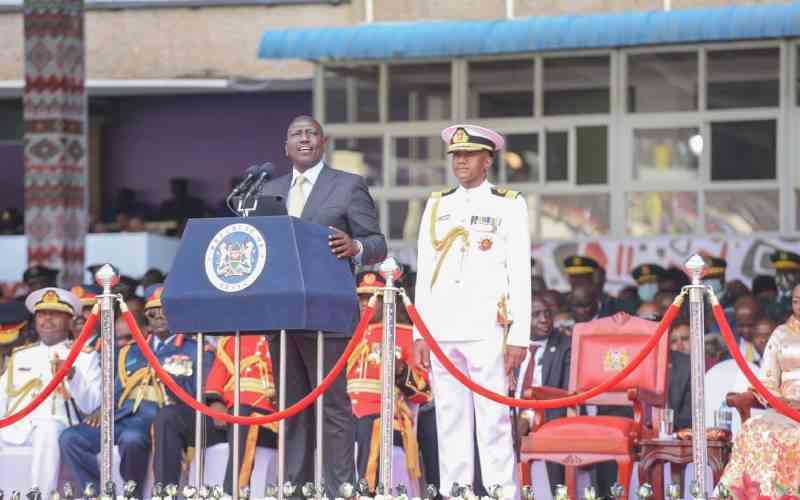×
The Standard e-Paper
Fearless, Trusted News

Far from sounding like another campaign pitch, the speech by the 5th President William Ruto grated from the choice of phrases, words and paragraphs that got cut off abruptly before concluding on an argument being advanced.
The personal touch was manifestly lacking in the speech unlike at the launch of his manifesto where it seemed enough thought went into writing the speech.